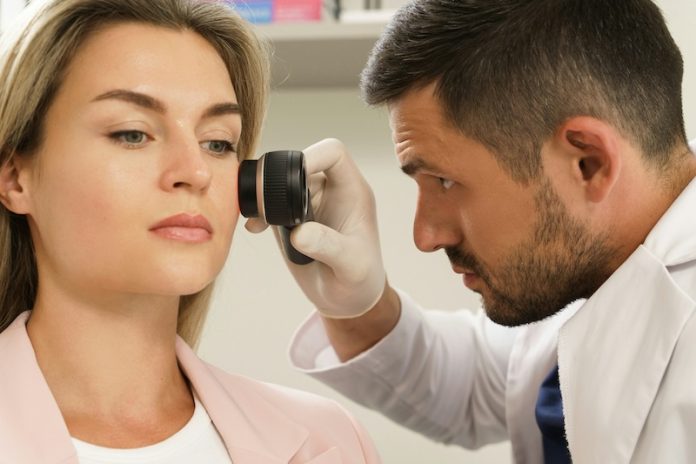
In Australia, high blood pressure, or hypertension, is a widespread condition that affects more than a third of adults over the age of 18. If left unmanaged, it can lead to severe health issues, including stroke and heart disease.
To control high blood pressure, doctors often prescribe medications alongside recommending lifestyle changes such as a healthier diet and regular exercise.
One common medication prescribed for high blood pressure in Australia is hydrochlorothiazide. This drug is widely used because of its effectiveness in helping to manage blood pressure.
However, a recent study from UNSW Sydney has brought to light some concerning findings about this medication, particularly its link to an increased risk of skin cancer.
Hydrochlorothiazide has properties that make the skin more sensitive to sunlight. This increased sensitivity may contribute to a higher risk of developing skin cancer, particularly in older individuals who are already more vulnerable to the harmful effects of the sun.
The study from UNSW Sydney examined skin cancer rates among older Australians who used this medication, confirming similar results found in previous international research.
The data for this study was provided by the Department of Veterans’ Affairs (DVA) in Australia.
It included anonymous information on cancer registrations, hospital admissions, and medication usage among DVA healthcare cardholders aged 65 and over in New South Wales, covering a period from 2004 to 2015.
The researchers specifically looked at individuals who had used hydrochlorothiazide and were diagnosed with lip cancer (45 cases) or malignant melanoma (659 cases). These cases were compared to a control group of 13,300 people who did not have these diagnoses.
The findings revealed that using hydrochlorothiazide was associated with an increased risk of developing both malignant melanoma and squamous cell cancer of the lip.
Moreover, the study found that the longer the medication was used, the higher the risk of developing lip cancer. These results underscore the importance of considering potential side effects when prescribing and using blood pressure medications.
Despite the study’s findings, the researchers emphasize that patients should not stop taking their medication without consulting their doctor.
High blood pressure is a serious condition that needs to be managed carefully, and stopping medication suddenly could have dangerous consequences.
Instead, the researchers suggest that doctors should be aware of this potential risk and take steps to monitor their patients accordingly.
For instance, doctors might consider conducting more frequent skin checks for patients using hydrochlorothiazide or advising them to take extra precautions in the sun.
This could include wearing sun-protective clothing, applying broad-spectrum sunscreen, and avoiding sun exposure during peak UV times, especially when the UV index is high.
In response to these findings, the product information for medications containing hydrochlorothiazide has been updated to include this potential risk.
This update ensures that healthcare providers are informed about the link between hydrochlorothiazide and skin cancer, allowing them to take the necessary steps to protect their patients.
For those concerned about skin health, other studies might also be of interest. Some research has identified the key signs of diabetic skin disease, while another study suggests that taking 3 grams of omega-3s daily could help maintain healthy blood pressure levels.
Additionally, emerging research is exploring how the toughness of skin could inspire the design of stealth aircraft and how to combat the effects of aging on the skin.
The study, led by Dr. Benjamin Daniels and his team, was published in Basic & Clinical Pharmacology & Toxicology. It highlights the delicate balance between effectively treating high blood pressure and being mindful of potential side effects like an increased risk of skin cancer.
As research continues, it is crucial for both patients and healthcare providers to stay informed and take proactive steps to ensure that treatment plans are both safe and effective.
If you care about skin health, please read studies about eating fish linked to higher risk of skin cancer, and Vitamin B3 could help prevent skin cancers.
For more information about health, please see recent studies about vegetable oil linked to spread of cancer, and results showing Vitamin D could help treat skin inflammation.
Copyright © 2024 Knowridge Science Report. All rights reserved.



